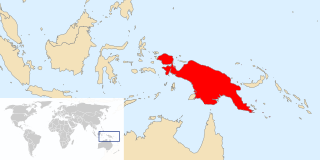| Scaptesyle bipartita | |
|---|---|
| Scientific classification | |
| Kingdom: | Animalia |
| Phylum: | Arthropoda |
| Class: | Insecta |
| Order: | Lepidoptera |
| Family: | Erebidae |
| Subfamily: | Arctiinae |
| Genus: | Scaptesyle |
| Species: | S. bipartita |
| Binomial name | |
| Scaptesyle bipartita (Rothschild, 1913) | |
| Synonyms | |
| |
Scaptesyle bipartita is a moth in the subfamily Arctiinae. It was described by Rothschild in 1913. It is found in New Guinea. [1]

Moths comprise a group of insects related to butterflies, belonging to the order Lepidoptera. Most lepidopterans are moths, and there are thought to be approximately 160,000 species of moth, many of which have yet to be described. Most species of moth are nocturnal, but there are also crepuscular and diurnal species.

The Arctiinae are a large and diverse subfamily of moths, with around 11,000 species found all over the world, including 6,000 neotropical species. This group includes the groups commonly known as tiger moths, which usually have bright colours, footmen, which are usually much drabber, lichen moths, and wasp moths. Many species have "hairy" caterpillars that are popularly known as woolly bears or woolly worms. The scientific name of this subfamily refers to this hairiness. Some species within the Arctiinae have the word “tussock” in their common name due to people misidentifying them as members of the Lymantriinae based on the characteristics of the larvae.

New Guinea is a large island separated by a shallow sea from the rest of the Australian continent. It is the world's second-largest, after Greenland, covering a land area of 785,753 km2 (303,381 sq mi), and the largest wholly or partly within the Southern Hemisphere and Oceania.